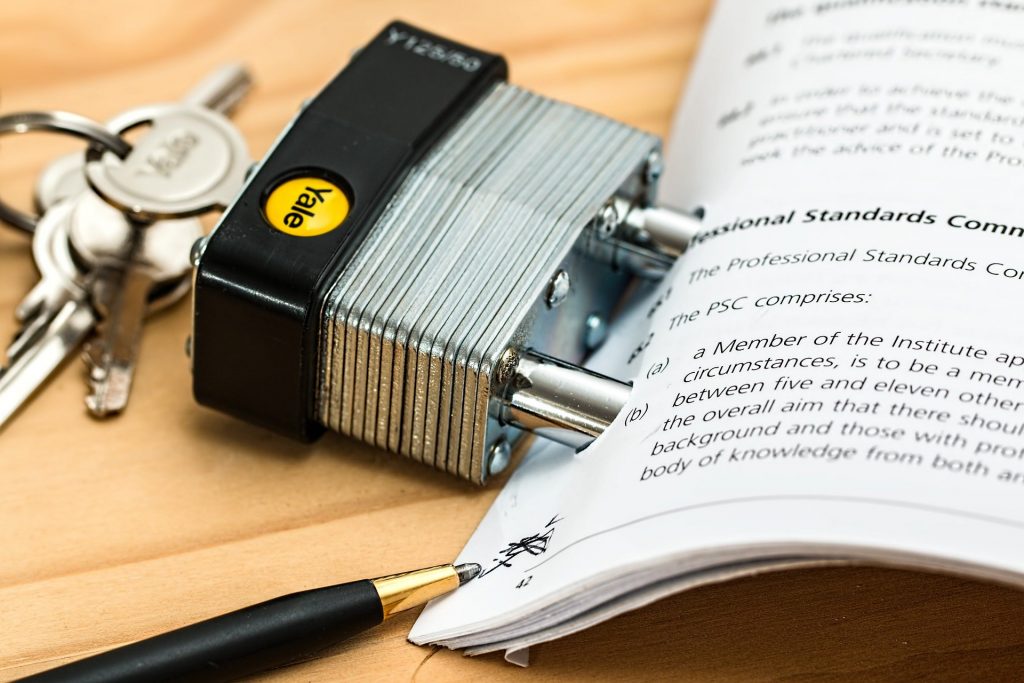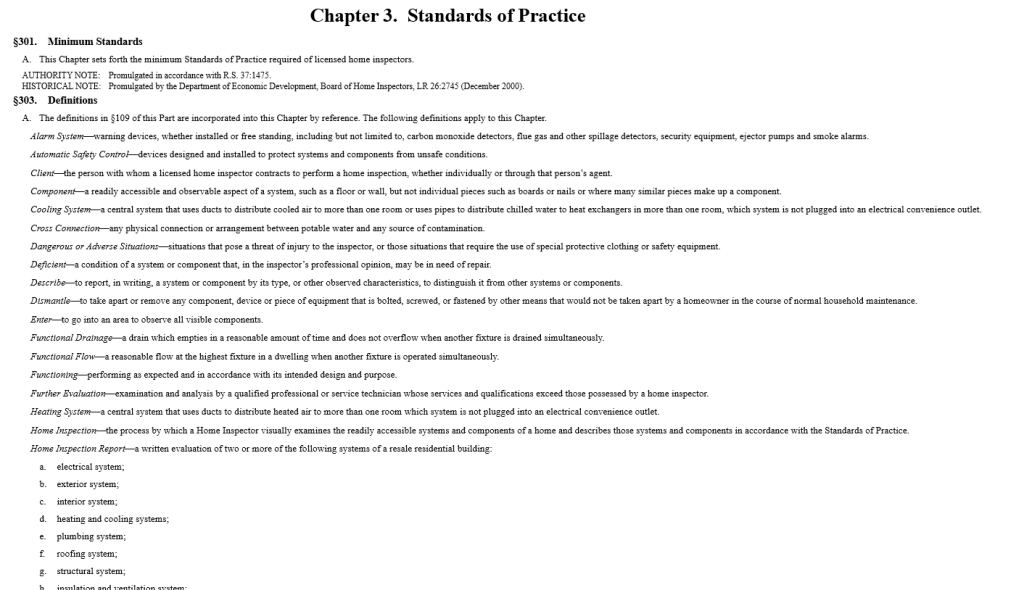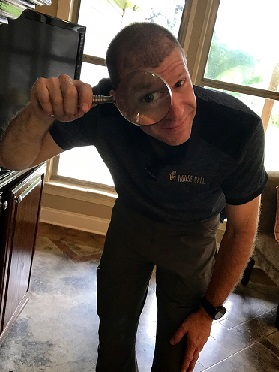Running a small business as a home inspector can be a wonderfully rewarding experience. It’s a unique job that has a lot of perks. We get to be in a different place every day, and not stuck in the same cubicle next to “Gum-smacking Sally.” We get to interact with different people every day, not forced to attend yet another 3-hour working lunch with the same 6 people we’ve spent every working hour with for the last 5 years. We make a decent living, and we get to help people at the same time (bonus!) But we must always remember that our job is not without its dangers. Walking on roofs and in attics, crawling around under houses, fooling around with electricity, and sometimes going into sketchy neighborhoods all come with a certain amount of risk. One risk that may not seem quite as apparent, but must be dealt with nonetheless, is the risk of getting caught up in a lawsuit from a disgruntled client with unreasonable expectations. While this is (thankfully) a rare occurrence, it’s one that we must take appropriate steps to plan for; and that means having (and properly utilizing) appropriate contracts in your inspection business.

If your inspection practice is located in one of the many states that require licensing of inspection professionals, the odds are that you’re required to get a contract signed by every client. If you carry home inspection insurance, even if you’re not in one of the licensing states, you’re likely required (by your insurance provider) to get your clients to sign a contract. Even if neither one of these stipulations apply to you, it makes good business sense to have a contract signed by every one of your inspection clients.
What is a Contract?
According to Wikipedia (https://en.wikipedia.org/wiki/Contract), a contract is a legally binding agreement that recognizes and governs the rights and duties of the parties to the agreement. Contracts are important to any business transaction (like performing an inspection for a paying client), as they help to define what’s being offered, in this case, an inspection. They allow our clients to agree that they accept our offer to perform an inspection in consideration for being paid to do so, and they allow both the business owner (us) and our client to agree to enter into a specific arrangement to do business together: we perform an inspection and they pay us for our service.
There are certainly many different aspects to a quality inspection contract. In this series of three articles, we’ll go over some of the items that should be included in all contracts, as well as touch on some things that we should consider adding to our inspection agreements.
Ubiquitous Legal Disclaimer
Please be aware that this article is intended to provoke thought about your inspection contract and prompt you to consider ways to possibly improve your agreement. It is not intended to be legal advice and should not be taken that way. As always, we recommend consulting with a qualified local attorney prior to implementing any changes to your contract. Laws vary from state to state, and what is permissible in one state may not be so in another. Always take adequate legal precautions prior to making any substantive changes to your business or its paperwork.
The Agreement
Obviously, every contract needs a section to outline the agreement between the parties. For us, this section will explain that we’re performing an inspection for our client, and that the client is to pay us a fee for our services. The contract should reinforce the fact that the inspection report will not be released to the client until the inspection fee has been paid and the agreement has been signed. The agreement should also establish who are the parties to the agreement, namely you and your client. If allowable in your state, you should name your business as party to the agreement, with you serving as the representative of that business.
Example: Please read all the terms and conditions of this agreement with My Home Inspection Company Inc, represented by inspector Mr. Homey Spector, as they are legally binding upon…
Acceptance and Scope
The agreement should include some language outlining what acceptance of the agreement means for the parties. It should identify that the agreement is part of the inspection report and that the agreement shall be binding and take precedence over any other documentation and/or communication between the parties. This language helps in case the clients try to claim that you verbally told them something that’s opposed to the language in the contract.
An inspection contract should also include a section that explains the scope of work to be conducted. It’s here where we explain the standards against which our work is to be judged. This section is where we reference the specific Standards of Practice (SOP) that we, as home inspection professionals, are operating under. Whether you’re following your specific state SOP or those of an inspection organization like ASHI or InterNACHI, be sure to reference them in this section.

The scope of work section is also where we explain, preferably in bold print, that we are performing a general, visual inspection of items that were visually accessible at the time of the inspection. We should take this opportunity to establish that a standard home inspection is not technically exhaustive, and that the inspection report contains the totality of our findings. We should also use this section to encourage our clients to read the entire report.
(FYI: I often review reports for inspectors, and a common mistake that I find is that inspectors who use the inspection agreement that comes pre-loaded with their inspection software neglect to change the SOP that’s referenced in this section. Whether it’s due to a simple oversight or a lack of ability to effectively navigate their inspection software, this type of error can provide an opposing attorney ammunition to use against us in court. Another common error is referencing more than one SOP, such as those of your home state as well as those of a national inspection organization. While most entity’s SOPs are very similar, any contradictions in different SOPs can provide an opposing attorney with something to use against you in a lawsuit. Take a moment to verify that your agreement references the correct SOP. Make these changes yourself or hire someone to do it for you. This is an easy way to take away some bullets from opposing counsel.)
Limitations and Exclusions
It’s important to explain any limitations of the inspection as well as to identify any inspection exclusions. This section is important, as it helps to clarify for our client the things that are not included as part of our agreement. Unfortunately for us, most of our clients will have little to no working knowledge of what it is that a home inspection entails. They often come into this business agreement with unrealistic expectations, and the contract serves as one of the main ways that we can help to realign their expectations with reality.
Misinformed Real Estate Agent: “Now your home inspector is going to come in and check every little thing in the home. They will let you know what everything is and explain how everything works. They’ll get the seller to fix anything that’s broken and replace anything that you don’t like. And the great part is that if anything ever breaks for as long as you’re living here, the inspector’s going to come back and fix it for you free of charge!”
Notification Requirements
The contract should include some type of notification requirements, to establish how and when our clients will let us know if they believe there’s a problem that we missed during our inspection. This section should establish a time limit for them to notify us of a problem, as well as set up an acceptable time frame for us to go back to the house to investigate their claims. It should also include language that explains that the client should refrain from making any repairs (except in the case of emergency) until the inspector has had an opportunity to personally evaluate the situation.

Along with our inspection report and any additional attachments we provide to our inspection clients, the home inspection contract is one of the most important pieces of documentation that we produce for our clients. A properly written and timely delivered (and signed) inspection contract is worth much more than we can imagine. Time spent reviewing our contract and our methods of delivery and signature verification could prove to be one of the most valuable things we ever do in our business.
Next week we will continue our discussion of the importance of our inspection agreement.
If you’ve enjoyed this article, click here to read part 2.
I welcome all feedback (both positive and negative) on this post.
Please take a moment to leave a comment below. Thank you!
Want to be an Influencer in Your Field? Share This Post!
Thanks, Joe

